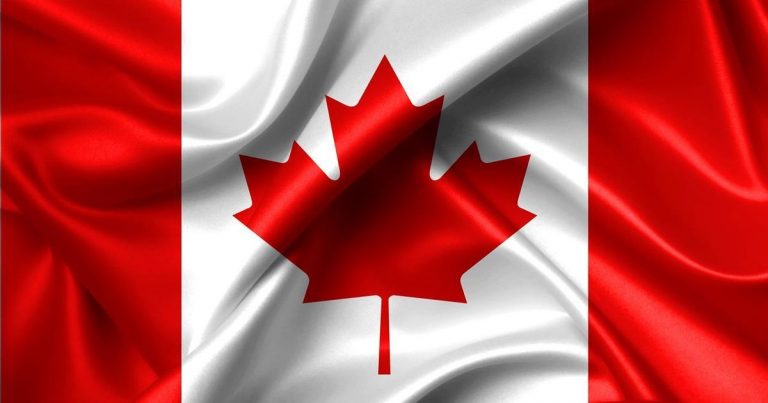How to Get a Canada IP Address From Anywhere in 2025
Accessing Canadian web content from outside the country isn’t always possible. Many banks, streaming services, and government platforms restrict access to users with foreign IP addresses. This can make it harder to log in to your bank account, use provincial health portals, or stream local content while traveling.
One way to maintain access is by using a virtual private network (VPN) with servers in Canada. A VPN gives your device a Canadian IP address, helping you securely access services from abroad. Our team reviewed dozens of providers to identify which VPNs offer stable connections, functional Canadian IPs, and the privacy protections needed when connecting across borders.
Quick Guide: How to Get a Canada IP Address in 3 Easy Steps
- Choose a VPN provider.
- Connect to a Canadian server.
This will give your device a Canadian IP address. - Browse Canadian websites.
You can now access services like banking, news, and streaming platforms as if you were in Canada.
Why You Need a VPN to Get a Canada IP Address
Many Canadian websites and services limit access based on your location. If you're outside the country, you might run into restrictions on platforms like CBC Gem, Crave, or Global TV, which block foreign IP addresses due to licensing rules. The same applies to features on Canada.ca, online banking apps like TD or RBC, and university systems such as UBC’s myDNS. Even grocery and delivery services like Loblaws or Instacart often require location verification tied to a Canadian IP.
A VPN can help by assigning your device a Canadian IP address. Once connected to a server in Canada, you’ll appear to be browsing from within the country. This restores access to region-locked sites, which is useful when you’re traveling, living abroad, or using a non-Canadian work device.
And there’s a privacy angle, too. Canada has proposed expanded surveillance powers through Bill C-21. This would give law enforcement the ability to obtain basic subscriber information from internet providers, like who uses their services and from where, without a warrant. Using a VPN encrypts your internet traffic and masks your real IP, giving you more control over who can see your activity, especially on public networks or while accessing sensitive services.
VPNs can also help bypass content restrictions within Canada. In response to Bill C-18, which requires platforms to compensate news publishers, Meta blocked news sharing on Facebook and Instagram for Canadian users in 20232. This reduced access to domestic journalism and cut traffic to smaller outlets. With a VPN, Canadians can view the versions of these platforms available to users outside the country, where news links remain visible.
When it comes to global press freedom, Canada still ranks relatively well, having placed 21st in the 2025 World Press Freedom Index3. But the country’s rank is declining, likely due to growing concerns over journalist arrests and the long-term sustainability of independent media. Whether you're abroad or at home, a VPN offers a way to access important online services and stay informed without restrictions.
Staying Connected with a Canadian IP Address
Access to Canadian digital services is becoming more dependent on where you’re connecting from. Whether you’re trying to log in to CIBC while abroad or use government platforms like ServiceOntario, a Canadian IP address is often required. Even inside the country, using a VPN can offer added privacy and access to news sources restricted by Bill C-18.
Not all VPNs can provide a stable Canadian IP or maintain consistent access to local platforms, though. We tested several options to find those that combine performance, privacy features, and practical usability. Check out our top pick, which has several Canadian servers, strong privacy safeguards, making it a solid option for anyone who needs fast, reliable access to Canadian content.
FAQs on Getting a Canada IP Address With a VPN
Is it legal to use a VPN to get a Canada IP address?
Yes, VPNs are legal in most countries. If you want to access Canadian content, simply launch your VPN and connect to a server in Canada — you’ll get a local IP address.
However, it’s important to check the laws and regulations in your location because some countries (like China and Russia) ban or restrict the use of VPNs.
Can I get a Canada IP address with a free VPN?
Probably not, as most free VPNs don’t offer reliable Canadian servers. Free services often limit server locations, speed, and bandwidth to force you to upgrade to their paid options. In some cases, free providers collect and sell user data or include ads and trackers. Using a premium VPN with Canadian servers and a money-back guarantee is a better alternative.
Free VPNs also lack essential security features to keep your online privacy protected. On top of that, some free VPNs sell users’ data and bundle malware into their apps.
What other ways are there to get a Canada IP address (aside from a VPN)?
It’s possible to obtain a Canadian IP using a proxy, Tor browser, or a Smart DNS service, but they have drawbacks. Proxies typically lack encryption, leaving you exposed. Tor offers strong privacy but is too slow for most everyday tasks. Smart DNS can spoof your location for streaming, but it doesn’t change your IP or secure your data.
How can I test if my IP address has changed to Canada?
You can use an IP-checking tool like vpnMentor’s IP Info Checker to confirm your location. After connecting to a Canadian server, use the tool, and it will show your current IP address and the associated country.
Can I access Netflix Canada from the United States?
Yes, you can watch content on your Netflix Canada account from the US by using a VPN with Canadian servers. Keep in mind that this may go against Netflix’s terms of service.




Please, comment on how to improve this article. Your feedback matters!